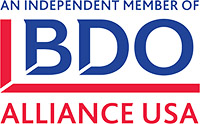In the realm of financial management, accounting software integration is a game-changer. It’s a key strategy for businesses seeking to streamline their financial processes.
Yet, the path to seamless integration is often fraught with challenges. From data synchronization to user-friendly interfaces, many factors come into play.
This article delves into the intricacies of accounting software integration. It provides insights into optimizing your accounting software, leveraging financial tools, and enhancing accounting tools.
Whether you’re a financial professional, a business owner, or an accountant, this article is for you. It’s designed to help you navigate the complexities of integrating your accounting software.
By the end of this article, you’ll have a deeper understanding of how to streamline your accounting processes. You’ll be equipped with strategies to optimize your financial management through effective accounting software integration.
Overcoming Common Integration Challenges
Despite its numerous benefits, accounting software integration is not without challenges. One common issue is the compatibility of different systems. Not all software solutions are designed to work seamlessly together, which can lead to integration difficulties.
Another challenge is data security. With the integration of various systems, the risk of data breaches increases. Businesses must ensure that their integrated accounting software has robust security measures in place. This includes encryption, secure data transfer, and regular system updates.
Lastly, there’s the issue of staff training. Employees need to be adequately trained to use the new integrated system effectively. This requires time and resources but is crucial for maximizing the benefits of accounting software integration. Businesses should consider these challenges and plan accordingly to ensure a successful integration process.
The Dangers of Not Leveraging Your Software
- Data Inaccuracy: Inefficient use of accounting software can lead to data entry errors, duplications, or omissions, resulting in inaccurate financial records. This can compromise the reliability of financial reports and decision-making processes.
- Poor Financial Visibility: Ineffective utilization of accounting software may limit the ability to generate timely and accurate financial reports. This can hinder management’s ability to gain insights into the company’s financial health and make informed business decisions.
- Compliance Risks: Inefficient use of accounting software can increase the risk of non-compliance with regulatory requirements and tax laws. Failure to accurately record transactions or maintain proper documentation can result in penalties, fines, or legal consequences.
- Wasted Time and Resources: Inefficient workflows and manual processes within the accounting software can waste time and resources. This can lead to inefficiencies, reduced productivity, and increased operational costs for the business.
- Security Vulnerabilities: Poor utilization of accounting software may result in inadequate data security measures, leaving sensitive financial information vulnerable to unauthorized access or cyber threats. This can expose the business to risks such as data breaches or fraud.
- Limited System Integration: Failure to effectively integrate accounting software with other business systems or applications can hinder data flow and communication across departments. This may result in disjointed processes, data silos, and missed opportunities for automation and efficiency gains.
- Lack of Training and Support: Insufficient training and support for accounting software users can contribute to ineffective utilization of the platform. Users may not be aware of all available features and functionalities or how to leverage them effectively to streamline processes and maximize productivity.
- Difficulty in Auditing and Reporting: Inefficient utilization of accounting software can make it challenging to track and audit financial transactions accurately. This can impede the auditing process and increase the risk of errors or discrepancies in financial reporting.
- Customer and Vendor Dissatisfaction: Inefficient invoicing, payment processing, or communication with customers and vendors can lead to dissatisfaction and strain relationships. This can impact the company’s reputation and long-term success.
- Inadequate Decision Support: Without proper utilization of accounting software capabilities, businesses may lack the necessary financial insights to support strategic decision-making. This can impede growth opportunities and competitive advantage in the marketplace.
Integration with Other Business Systems: A Strategic Approach
Accounting software integration is not an isolated process. It involves connecting the accounting system with other business systems like CRM, ERP, and inventory management. This integration allows for real-time data sharing, enhancing decision-making and operational efficiency.

A strategic approach to this integration is crucial. It involves aligning the integration with your business objectives. This ensures that the integrated system supports your business’s strategic goals. It also involves planning for potential challenges and developing strategies to overcome them.
Finally, continuous monitoring and optimization are key. This involves regularly reviewing the integrated system’s performance and making necessary adjustments. This ensures that the system continues to meet your business’s needs and contributes to its growth and success.
Leveraging APIs for Enhanced Accounting Software Functionality
APIs, or Application Programming Interfaces, play a crucial role in accounting software integration. They act as a bridge, enabling different software systems to communicate and share data. This enhances the functionality of your accounting software, making it more versatile and efficient.
APIs can facilitate real-time data synchronization, ensuring that your financial data is always up-to-date. This can significantly improve the accuracy of your financial reporting and decision-making. Moreover, APIs can enable the integration of your accounting software with other business systems, enhancing its functionality and utility.
However, leveraging APIs for accounting software integration requires technical expertise. It’s important to work with experienced professionals who understand the complexities of API integration. This ensures that the integration process is smooth and efficient, and that your integrated accounting system functions optimally.
The Role of Cloud-Based Solutions in Accounting Integration
Cloud-based solutions are revolutionizing the field of accounting software integration. They offer a host of benefits that make them an attractive option for businesses of all sizes. These solutions are accessible from anywhere, providing flexibility and convenience for users.
Moreover, cloud-based accounting software is designed for seamless integration. It can easily connect with other cloud-based systems, facilitating data synchronization and real-time reporting. This can significantly enhance the efficiency of your financial processes, saving you time and resources.
However, it’s important to consider data security when using cloud-based solutions. Ensure that your chosen software has robust security measures in place to protect your financial data. This includes encryption, secure data transfer protocols, and regular security updates. With the right precautions, cloud-based solutions can be a powerful tool for accounting software integration.
Ensuring Data Security in Your Integrated Accounting System
Data security is a paramount concern in accounting software integration. The integration process often involves the transfer of sensitive financial data between different systems. This data must be protected from unauthorized access and potential breaches.
Implementing robust security measures is crucial. These may include data encryption, secure data transfer protocols, and regular security updates. Additionally, it’s important to conduct regular audits to ensure compliance with data protection regulations. By prioritizing data security, you can ensure the integrity of your integrated accounting system and maintain the trust of your stakeholders.
Preparing for the Future: AI and Machine Learning in Accounting
The future of accounting software integration lies in the adoption of emerging technologies like AI and machine learning. These technologies promise to revolutionize financial management by automating complex tasks, improving data accuracy, and providing predictive insights.
AI can automate data entry, invoice processing, and financial reporting, reducing human error and freeing up time for strategic tasks. Machine learning, on the other hand, can analyze vast amounts of financial data to predict trends, identify anomalies, and provide actionable insights. By integrating these technologies into their accounting software, businesses can stay ahead of the curve and gain a competitive edge.
Conclusion: Maximizing ROI with Integrated Accounting Software
Investing in accounting software integration can yield significant returns for businesses. By streamlining financial processes, improving data accuracy, and enabling real-time reporting, integrated accounting software can enhance decision-making and drive business growth.
However, to maximize ROI, businesses must carefully select their accounting software, ensure seamless integration with other systems, and invest in staff training. With the right approach, accounting software integration can transform financial management and contribute to the organization’s bottom line.
Written By:
Margaret Rizzo
Client Advisory Manager | Sasseti LLC





